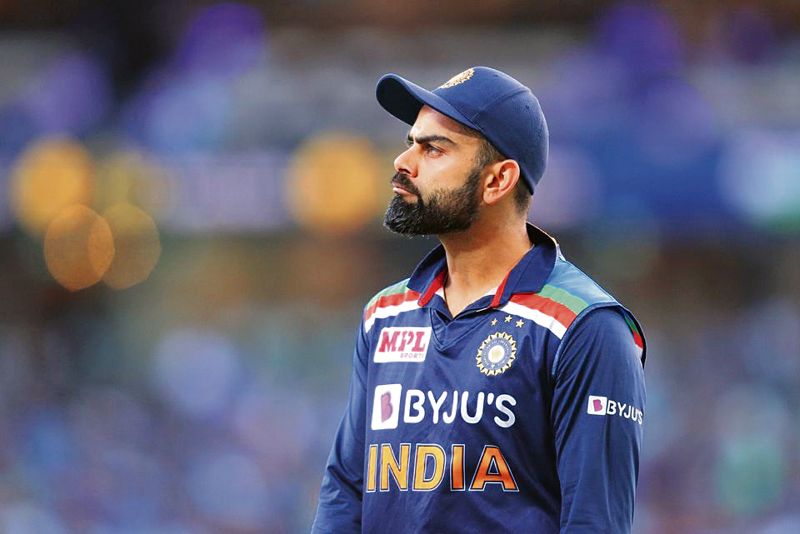Hyderabad: Cometh the man, cometh Virat Kohli!
How often has this aphorism been used by the world media? And rightly so considering every time the Indian cricket was down in the dumps, he was the first man to dig his team out of the hole. Sometimes being attributed as the face of 'New India', on other occasions being the flagbearer Indian youth who are ready to take on the world, never buckling down, can the expectations take toll on the mental health of players?
Dr Nanaki J. Chadha, Sport and Performance Psychologist explains as she takes questions from ETV Bharat's Ayushmaan Pandey on the pressure that athletes go through and how former Indian skipper Virat Kohli has done himself a world of good by taking a month's long break.
Q1) Virat Kohli looks like a completely different batter after a month-long break. He did talk about staying away from the bat for an entire month, which has brought back his love for the game. Why do you think it's necessary to stay away from the sport for some time?
A. Elite athletes face a range of stressors. Constant travel, unrealistic expectations from others, and an attitude of perfection are just a few examples. To add to this, athletes like Virat Kohli are under continuous public scrutiny and their every decision, whether personal or professional, is commented upon. Dealing with this unceasing scrutiny in addition to regular training schedules can result in burnout. Competitive sport is definitely physically challenging, but it is also important to recognize that there are multiple stressors that can cause mental and emotional exhaustion and result in the athlete losing love for their sport and wanting to take a break from it.
Therefore, it is extremely important for athletes to take breaks at regular intervals. This allows them to relax, rejuvenate and recharge so that they return with a fresh mindset.

Read: Roger Binny to replace Ganguly as BCCI president, Shah to remain secretary
Q2) He also talked about he was not being himself on a few occasions and probably not enjoying as much as he used to, faking the intensity at times. He is also perceived as a player who is mentally strong. Do you think it can happen to the best of the best? As a sports psychologist what needs to be done to ensure that a player is in the best of his/her mental health so that the athlete keeps performing.
A. Absolutely! In the last few years, many well-known athletes in India and globally have spoken about taking mental health breaks. For instance, in 2019, Australia's star batsmen - Glenn Maxwell decided to take a break from cricket in order to deal with mental health issues. Similarly, Simone Biles, the seven times Olympic medallist has been on an indefinite break from gymnastics since her withdrawal from the Tokyo Olympics in 2020.
Firstly, providing athletes with sport psychology support can ensure they are able to cope with the pressures of competition. The recent re-appointment of Paddy Upton to the Indian men's cricket support staff team is an encouraging step in the right direction.
Secondly, what needs to change is a common notion that "more is better". Athletes often feel that the more or harder they train, the better their performance will be. This is untrue. It is essential for athletes to take adequate rest days and involve themselves in activities unrelated to their sport.
Lastly, coaches need to create a more supportive environment for athletes to flourish. They can work closely and collaboratively with the sport psychologist to achieve this.

Q3) Virat also thanked Anushka Sharma, his wife, when he scored a century in the Asia Cup recently. How much a partner can help an athlete from overcoming the odds that a player goes through?
A. Social support is critical in all professions and sport is no different. It can be from your parents, coaches, or peers/teammates that can significantly help an athlete cope with challenging circumstances. Even tennis legend Roger Federer recently alluded to the support of his wife Mirka and children during a recent interview at the Laver Cup. Most often, this is one element that is overlooked and not appreciated enough.
Q4) Modern players have a massive amount of commitment in terms of ads, expectations, performing for the country and brand promotions, especially cricketers who are treated as superstars in India. Do you think all this should be lessened or adjusted in a way that it doesn't start taking toll on a player's mental health?
A. Yes, absolutely. These days, athletes' are either training, travelling for competitions or busy with endorsements. Hence, overloading their schedules and not leaving any space for free time to unwind from their hectic timetables can be detrimental to their performance on the field.
The athlete is unable to recover properly from the overburden and the consequences are physical and emotional exhaustion, performance decrements, and absence of focus during performance with a high possibility of burning out. Hence, it’s essential for the athletes to prioritise and consider these additional opportunities based on the availability of time.
Q5) Some of the athletes are perceived as alpha males like Virat Kohli. For him to come out in the open and talk about his mental health struggles, how much do you think would it help break the stigma attached to it, especially among male players who are supposed to be strong and not show emotions, something that is conditioned in a man by the society?
A. In India, after Abhinav Bindra, Virat Kohli was one of the first few athletes who came out and started talking about mental health via his own personal journey. Someone of his stature sharing his experience will surely break the stereotypical viewpoint that men have to be strong and cannot cry. Instead, normalizing the perspective that one doesn’t need to bottle up their emotions, but rather is allowed to express themselves freely can go a long way.
He is arguably one of the best batsmen Indian cricket has seen and with his massive fan following, he has already started creating awareness around mental health and breaking the stigma. Following in his footsteps many more Indian athletes have come out and shared their journeys stories.


